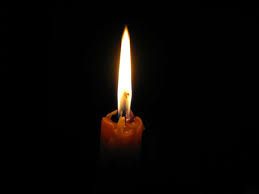On November 23, Ukraine and the world commemorate the Holodomor victims. This genocide has become a tragedy of Ukraine and humanity. It is also a family tragedy of many Ukrainians, in particular, Museum “Jewish Memory and Holocaust in Ukraine” employees, a painful memory of the relatives and friends’ death in those terrible times.
The Holodomor of 1932-1933 was the result of a campaign to collectivize agriculture, “dekulakization” of peasants, collection of grain for State grain stock pile and other manifestations of Stalin’s economic policy in Ukraine. Collective farms and whole villages for the failure to fulfil the plan for grain procurement were brought by the state to the “black board” with the seizure of all industrial goods and the termination of their further import. This led to a great famine. According to various estimates, from 3 to 7 million Ukrainians, who accounted for more than 80% of the victims, as well as Russians, Poles, Jews, Bulgarians, Germans and representatives of other ethnic groups living in the national districts of Ukrainian Soviet Socialist Republic, have become the victims of the Holodomor, artificially created by the communist government. The facts of death from starvation in Jewish national areas – Stalindorf (located on the modern territory of the Dnipropetrovsk region), Novozlatopil (Zaporizhzhia region), Kalinindorf (Kherson region) - were documented. In 2006, the Verkhovna Rada of Ukraine officially recognized the Holodomor of 1932-1933 as the genocide of the Ukrainian people. To date, the Holodomor as a genocide has been recognized, except for Ukraine, by 15 countries, UN members and the Vatican.
“Tkuma” Ukrainian Institute for Holocaust Studies and Museum “Jewish Memory and Holocaust in Ukraine” commemorate all the Holodomor victims and make practical efforts to preserve the memory of this genocide: every year we hold museum educational lessons for school students and students on the Holodomor history and commemorative ceremonies; we organize public lectures by leading Ukrainian scientists - specialists on this issue; in 2016, in cooperation with the Ukrainian Holodomor Research Center, led by prof. Liudmyla Hrynevych, a permanent exhibition dedicated to the Holodomor of 1932-1933 and other, little-known famines was created in the Museum (see photo). Our work on the Holodomor commemoration will continue.
Today at 16.00 we will light a candle of memory in our windows.
Remember!

